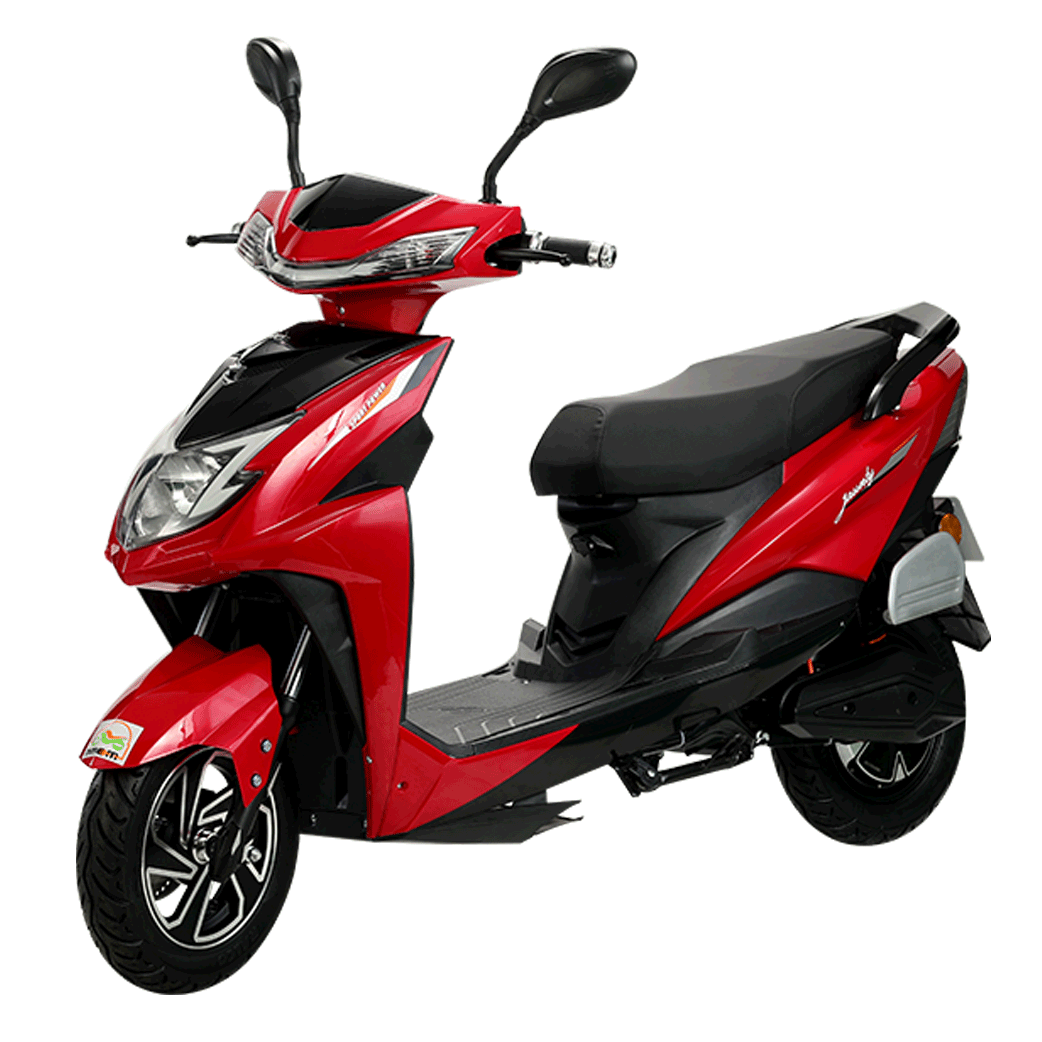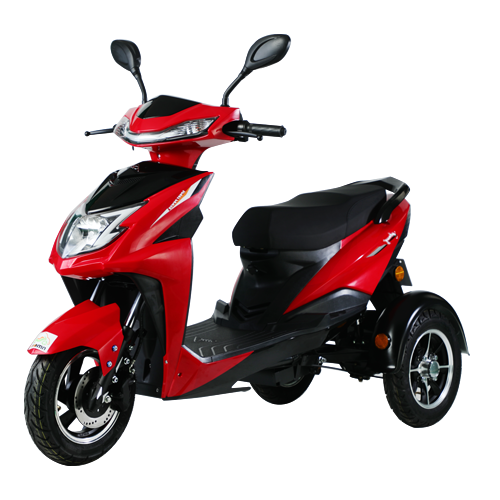Will e-scooters and battery bikes, among other electric vehicles, usher in an emission-free, sustainable mobility revolution? Although several benefits are indicated in favor of electric vehicles or EVs, experts warn that global manufacturing sectors dependent on fossil fuels must explore alternatives more rapidly. Learn more about it in this feature.
Understanding environmental impacts of electric two wheelers in India
EVs like e bikes and e scootys emit significantly fewer pollutants than conventional petrol-powered vehicles when it comes to the main environmental impacts. This is because EVs create substantially less carbon dioxide and other pollutants because they get their electricity from a cleaner source, namely batteries, which is akin to energy from wind or solar power.
This is a good thing, but good things may easily get the better of you. However, both positive and negative effects coexist when discussing the overall ecological consequences of electric vehicles. However, producers of electric two-wheelers like AMO Electric Bikes and others consistently work to eliminate the unfavorable factors that hurt the environment.
The negative and positive aspects of the whole tale of how electric vehicles affect the environment in India are covered below.
What are the good and bad environmental impacts of electric two wheelers in India?
 In India, the emergence of electric two-wheelers like e bikes and scooters has been a significant development in recent years. More and more people are turning to electric vehicles as the demand for more sustainable transportation intensifies. The environmental effects of these vehicles, both good and bad, must be understood, though.
In India, the emergence of electric two-wheelers like e bikes and scooters has been a significant development in recent years. More and more people are turning to electric vehicles as the demand for more sustainable transportation intensifies. The environmental effects of these vehicles, both good and bad, must be understood, though.
It is important to remember that benefits to the environment significantly outweigh any harm caused by adverse effects. Therefore, even if you have a passing awareness of environmental issues, you should think about purchasing a smart electric scooter or battery bike.
Positive Environment Impacts of Electric Vehicles || Does Future belongs to battery bikes?
A. Reduction in Greenhouse Gas Emissions
The main advantage of electric two wheelers is their ability to reduce greenhouse gas emissions. Unlike petrol-powered vehicles, electric vehicles do not emit any tailpipe emissions, which are a major contributor to air pollution and climate change.
B. Lower Energy Consumption
Electric two wheelers require less energy to produce and operate than gasoline-powered vehicles. This leads to a lower overall impact on the environment, as energy production and usage is a significant contributors to global greenhouse gas emissions.
C. Quiet or Noiseless Operation
Electric two wheelers operate quietly, reducing noise pollution in urban areas. This can have a positive impact on the quality of life for residents, especially in densely populated areas.
So, yes, the future does belong to battery bikes in India. The demand for clean and sustainable transportation is increasing, and electric bikes provide a cost-effective and eco-friendly solution.
Additionally, the Indian government is promoting the use of electric vehicles through various initiatives and subsidies.
Furthermore, advancements in battery technology and infrastructure development are making it easier for consumers to adopt electric bikes.
Studies have shown that the market for electric bikes in India is growing at a rapid pace and is expected to reach $5 billion by 2025. Another set of experts hinted that as electric bike prices lower, more consumers will be attracted to them and even buy them.
Talking about two wheeler EV price in India, do you know how are various firms reducing their product prices in 2023? Learn more about E bikes and E scooter prices in India.
Which electric bikes and battery scooters are available at discounted prices in India?
The electric two-wheeler market in India is witnessing a steady decline in prices due to the increase in government subsidies and initiatives.
a. For instance, AMO Electric Bikes top two-wheeler EV bikes and EV scooters have seen a further reduction in prices. Jaunty Plus, Inspirer, Jaunty Pro, Feisty and Brisk battery scootys are now more affordable to consumers. If you are looking for the most efficient and cheapest electric scooter in India, Brisk is the ideal EV for you.
b. The e scooter prices for Greaves's Ampere brand have dropped by more than Rs. 9000 following government incentives.
c. Similarly, the battery scooter prices for Hero Electric's Optima have also dropped in the recent past.
This trend displaying reduction of EV prices in India is expected to continue as the government increases its subsidies and initiatives to promote the adoption of electric vehicles in the country.
This trend can be attributed to the increased competition in the market, the reduction in battery costs, and the efforts made by the government to promote electric vehicles.
According to a study, price cost of electric two-wheelers in India will be comparable to those of traditional petrol bikes and scooters by 2027.
Some other examples of reduced prices by two-wheeler EV brands in India include:
a. Hero Electric has reduced the prices of its electric scooters by up to 10% in 2021.
b. Ather Energy's electric scooters have become more affordable with price reductions of up to 20% in 2020.
c. Okinawa has also reduced the prices of its electric scooters by up to 15% in 2020.
d. As per a report, the starting price of the Ola S1 Pro has dropped by 25 percent thanks to locally produced lithium-ion batteries.
Returning to our main topic, read on to learn about the negative environmental impacts of electric vehicles.
Negative Environmental Impacts of EVs || Will smart EVs help the environment?
A. Battery Production
The production of batteries for electric two wheelers requires the use of raw materials, such as lithium, nickel, and cobalt, which can have a negative impact on the environment. The extraction and processing of these materials can cause environmental damage, such as soil degradation, water pollution, and air pollution.
B. Disposal of Batteries
At the end of the life of an electric two wheeler, the battery must be disposed of properly to prevent environmental damage. Improper disposal of batteries can result in the release of toxic chemicals into the environment, leading to soil and water pollution.
C. Energy Source Dependence
 The environmental impact of electric two wheelers is dependent on the source of energy used to charge the batteries. If the energy comes from fossil fuels, such as coal or natural gas, the impact on the environment can be significant. On the other hand, if the energy comes from renewable sources, such as wind or solar power, the impact is much lower.
The environmental impact of electric two wheelers is dependent on the source of energy used to charge the batteries. If the energy comes from fossil fuels, such as coal or natural gas, the impact on the environment can be significant. On the other hand, if the energy comes from renewable sources, such as wind or solar power, the impact is much lower.
Numerous industry professionals have made suggestions that strategic shifts in global production are about to be made that will make the industry more environment-friendly. Additionally, they suggest that smart electric scooters with sophisticated battery management systems might significantly lessen the harmful effects on the environment.
For instance, AMO’S premium two-wheeler EV models like Jaunty Plus, Inspirer, Feisty and Jaunty 3W are equipped with smart and efficient battery management system, which keeps the battery operation optimized and tracked for your convenience.
Learn how smart electric two wheelers could change the game for sustainable transportation in India and around the world.
Manufacturing smart EVs has the potential to reduce environmental impacts
The talk of the town is that two wheeler EV prices are already reducing in many parts of the world.
According to a report by the International Energy Agency, electric scooters could make up a quarter of all two-wheeler sales by 2030, which would significantly reduce the impact of transportation on the environment.
Here are some more reasons why manufacturing smart EVs in India makes sense.
a. Green Energy Sources: Smart EVs rely on renewable energy sources such as solar and wind power, reducing the carbon footprint of the manufacturing process.
b. Energy Efficiency: Smart EVs are designed to be highly energy efficient, with features such as regenerative braking and smart charging systems, which reduce the energy used during driving and charging.
c. Recyclable Materials: Many smart EVs use recyclable materials in their construction, such as aluminum, reducing the amount of waste generated during manufacturing and end-of-life disposal.
d. Better Battery Management: Smart EVs use advanced battery management systems that reduce the risk of battery failures and extend the lifespan of the battery, reducing the amount of waste generated from batteries that need to be replaced.
e. Reduced Emissions: The use of electric powertrains reduces the emissions generated during driving, improving local air quality and reducing the impact on the environment.
Bottom Line:
Electric vehicles (EVs), such as e-scooters and battery bikes, have both positive and negative environmental implications. Reduced greenhouse gas emissions, lower energy use, and silent operation are all positive aspects. However, the extraction and processing of raw minerals like lithium, nickel, and cobalt for the manufacture of EV batteries can have detrimental consequences on the environment, including soil erosion, water pollution, and air pollution.
But as technology advances, there are ample opportunities to reduce the environmental impacts. Smart EVs will once again prove critical to this. Many EV manufacturers have already started working on smart version of electric battery bikes and EV scootys.
If you want to buy a two wheeler EV with smart features and enhanced efficiency, visit the nearest AMO electric bike dealerships and get yourself a test drive of our best EV scootys in India.
© AMO Mobility Solutions Pvt. Ltd, All Rights Reserved | Powered by Amo Electric Bikes